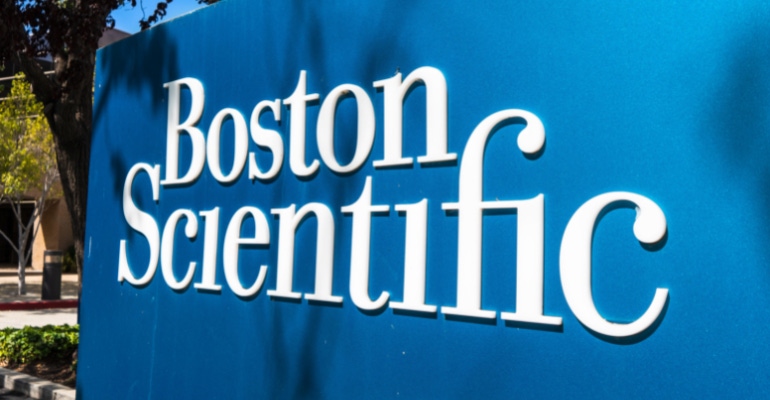Boston Scientific's $615M Apollo Bid Carries Weight with Analysts
Medtech analysts say the acquisition of Apollo Endosurgery will compliment Boston Scientific's existing endoscopy portfolio.
November 29, 2022

The bariatric space is heating up – first with Telflex buying Standard Bariatrics, and now with Boston Scientific agreeing to a $615 million acquisition of Apollo Endosurgery.
The Apollo Endosurgery product portfolio includes devices used during endoluminal surgery (ELS) procedures to close gastrointestinal defects, manage gastrointestinal complications, and aid in weight loss for patients suffering from obesity. ELS is designed to offer a less-invasive alternative to open and laparoscopic surgery for patients with diseases in the gastrointestinal tract or morbid obesity, while providing the potential for quicker recovery and minimizing the risks of surgical complications.
"Endoluminal surgery is an emerging field and a core focus for our Endoscopy business," said Mike Jones, senior vice president and president of endoscopy at Boston Scientific. "We intend to expand our global capabilities in ELS with the differentiated innovation that Apollo Endosurgery offers, and we will continue to focus on procedural adoption as well as professional education in this exciting space. This acquisition also enables us to enter a new adjacency – the endobariatric market – and deliver strong, continued growth across our business."
Apollo Endosurgery is on track to generate net sales of about $76 million in 2022, driven by the expected growth in its endoscopic suturing system franchise, including its OverStitch endoscopic suturing system, OverStitch Sx endoscopic suturing system, and X-Tack endoscopic HeliX tacking system.
Analysts reacted positively to the deal announcement.
"While we are surprised at the premium paid for this acquisition, we expect these systems to complement [Boston Scientific's] existing endoscopy portfolio," Marie Thibault, a medtech analyst at BTIG, wrote in a report Tuesday.
Mike Matson, a medtech analyst at Needham & Co., also noted the complementary nature of Apollo to Boston Scientific's endoscopy business.
"... it leverages [Boston Scientific's] gastroenterologist call point while offering expansion potential into surgical endoscopy and bariatric surgery," Matson wrote in a report Tuesday.
Both BTIG and Needham reiterated buy ratings on Boston Scientific's stock following the announcement.
The deal is expected to close in the first half of 2023. Boston Scientific expects the impact to its adjusted earnings per share to be immaterial in 2023, and slightly accretive thereafter. The impact to GAAP earnings per share is expected to be less accretive, or more dilutive, as the case may be, due to amortization expense and acquisition-related net charges. The company plans to fund the deal from cash on hand or available credit lines.
In July 2022, Apollo Endosurgery received FDA de novo clearance for its Apollo ESG, Apollo ESG Sx, Apollo Revise and Apollo Revise Sx systems, the first devices authorized by FDA for endoscopic sleeve gastroplasty (ESG) and endoscopic bariatric revision procedures. The company's endobariatric portfolio also includes the Orbera Intragastric Balloon for endoscopic weight management. Apollo is also developing a next-generation version of its OverStitch product, which would be aimed at single channel scopes.
OverStitch is designed to enable improved core gastrointestinal and bariatric therapy options for physicians and patients by allowing physicians to suture with precision from a flexible endoscope.
The Orbera balloon, made of silicone, is placed into the stomach endoscopically while it is deflated, then it is filled with saline until it is about the size of a grapefruit. The balloon is only in the stomach for six months, but patients continue to receive weight-loss support for a full year from a team of specialists.
Apollo sold its surgical product line, which included the Lap-Band adjustable gastric banding system, to Reshape Medical in 2018. In turn, ReShape sold its intragastric balloon line to Apollo.
Apollo inherited both the Orbera balloon and the Lap-Band device through its $110 million acquisition of Allergan's obesity intervention division in 2013.
Thibault noted that Apollo has been growing its U.S. sales footprint to accelerate revenue growth. She also said the Orbera balloon is expected to grow at a low to mid-single-digit rate in the U.S. and outside the U.S., based on the management team's comments on the latest earnings call, which was earlier this month.
About the Author(s)
You May Also Like



.png?width=300&auto=webp&quality=80&disable=upscale)
